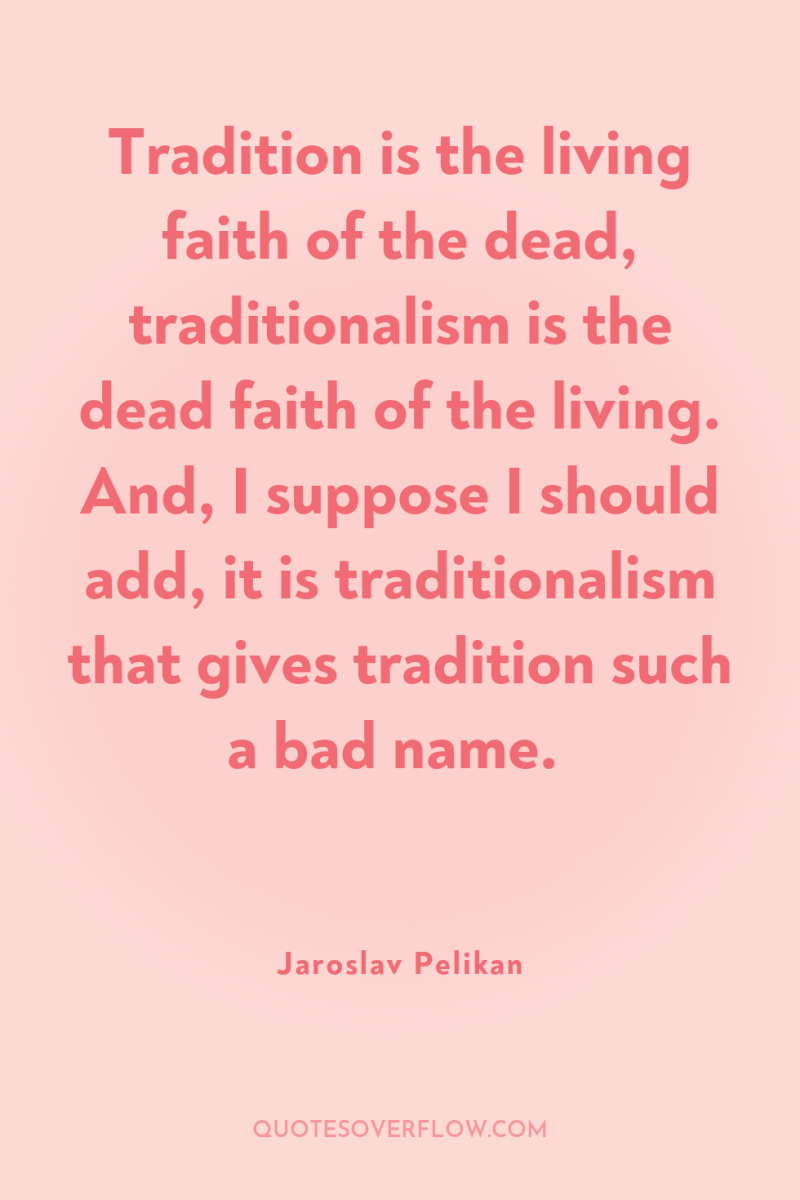
Tradition is the living faith of the dead, traditionalism is the dead faith of the living. And, I suppose I should add, it is traditionalism that gives tradition such a bad name.Jaroslav Pelikan
One example is the familiar parable of the prodigal son (Luke 15:11-32), which in some ways might be better called the parable of the elder brother. For the point of the parable as a whole - a point frequently overlooked by Christian interpreters, in their eagerness to stress the uniqueness and particularity of the church as the prodigal younger son who has been restored to the father's favor - is in the closing words of the father to the elder brother, who stands for the people of Israel: 'Son, you are always with me, and all that is mine is yours. It was fitting to make merry and be glad, for this your brother was dead, and is alive; he was lost, and is found.' The historic covenant between God and Israel was permanent, and it was into this covenant that other peoples too, were now being introduced. This parable of Jesus affirmed both the tradition of God's continuing relation with Israel and the innovation of God's new relation with the church - a twofold covenant. .Jaroslav Pelikan
The apostle Paul often appears in Christian thought as the one chiefly responsible for the de- Judaization of the gospel and even for the transmutation of the person of Jesus from a rabbi in the Jewish sense to a divine being in the Greek sense. Such an interpretation of Paul became almost canonical in certain schools of biblical criticism during the nineteenth century, especially that of Ferdinand Christian Baur, who saw the controversy between Paul and Peter as a conflict between the party of Peter, with its 'Judaizing' distortion of the gospel into a new law, and the party of Paul, with its universal vision of the gospel as a message about Jesus for all humanity. Very often, of course, this description of the opposition between Peter and Paul and between law and gospel was cast in the language of the opposition between Roman Catholicism (which traced its succession to Peter as the first pope) and Protestantism (which arose from Luther's interpretation of the epistles of Paul). Luther's favorite among those epistles, the letter to the Romans, became the charter for this supposed declaration of independence from Judaism. .Jaroslav Pelikan
In principle, to be sure, the Reformation idea of the universal priesthood of all believers meant that not only the clergy but also the laity, not only the theologian but also the magistrate, had the capacity to read, understand, and apply the teachings of the Bible. Yet one of the contributions of the sacred philology of the biblical humanists to the Reformation was an insistence that, in practice, often contradicted the notion of the universal priesthood: the Bible had to be understood on the basis of the authentic original text, written in Hebrew and Greek which, most of the time, only clergy and theologians could comprehend properly. Thus the scholarly authority of the Reformation clergy replaced the priestly authority of the medieval clergy.Jaroslav Pelikan